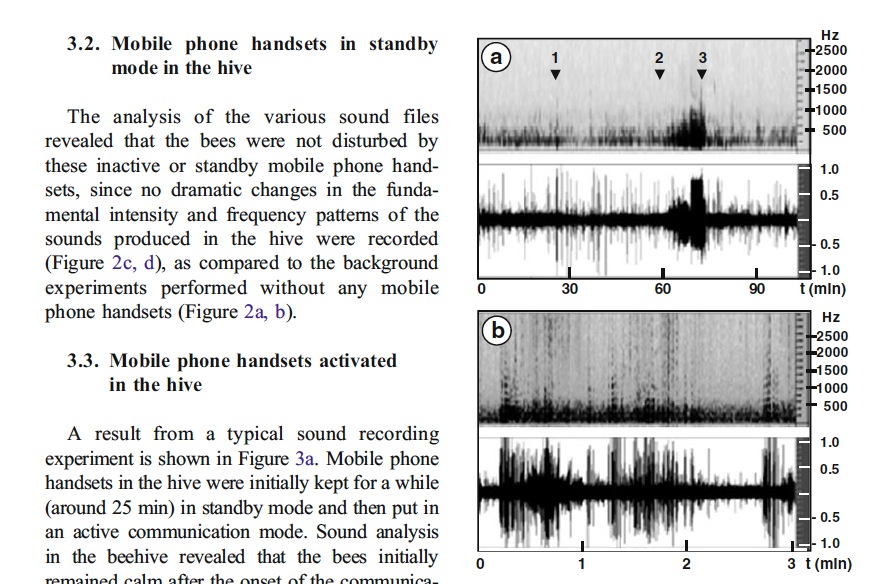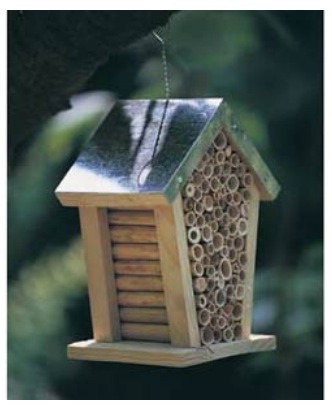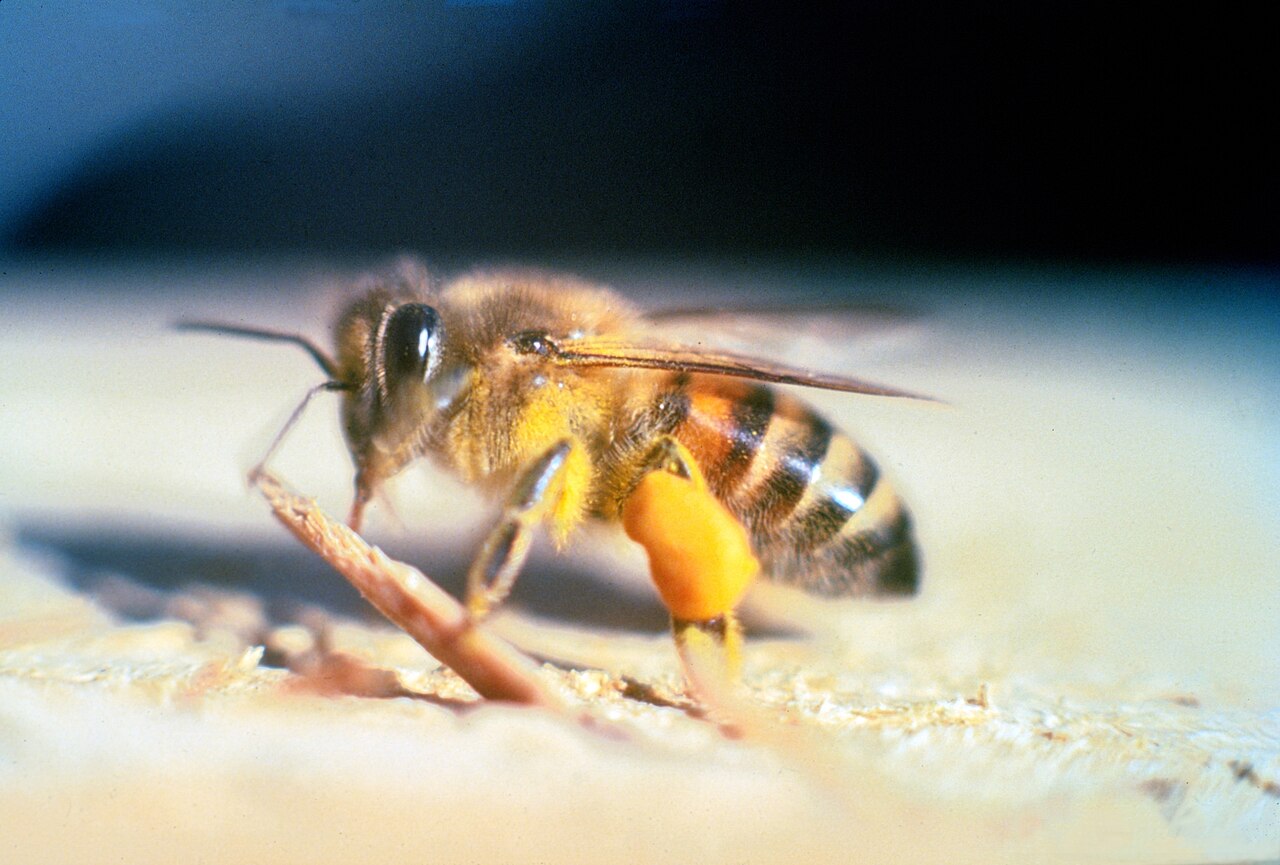Our friend the Bee!
-
I think that might be a knuckle Rich .... as in 'knucklehead'
 Also I think a bee would be smarter that to land on a fingertip
Also I think a bee would be smarter that to land on a fingertip 
-
Isn't that the top of the finger between knuckles?
-
Whatever it is it's definitely more interesting than the rest of the story

-
@mitcorb said:
Isn't that the top of the finger between knuckles?
A more accurate description

Rich! Have you checked for hairs growing on the palms of your hands OR worse still, on the soles of your feet? They say its the first sign of madness!

-
My understanding is that bees see partially in ultraviolet wavelengths, and navigate by the sun, possibly even using polarized filtration in their eye structure? Electromagnetic radiation in the cellphone range could have some effect. It would be a matter of degree.
I have read that some migratory birds have biocompasses in their brains. Tiny iron nodules or fibers with polarity act similarly to the vestibular canals in the inner ear. -
.... now that Rich is off checking his palms and soles for hair growth we can continue with this discussion

Mitcorb, yes, you are on the right track. You might find Daniel Favre's paper Mobile phone-induced honeybee worker piping' interesting.

-
Just did a workshop on Native Bees, and the discussion of course started with the demise of the domestic bee stocks.
Apparently a perfect storm of viruses, mites,radio waves, and the most interesting one to me was lack of proper nutrition from agricultural practice of monoculture crops, which was likened to a human being only able to eat one of the food groups.
Apparently this has weakened the bees immune system.
On Canada's Vancouver Island the Honey Bee stock was essentially wiped out.
Then the focus moved to wild native bees, and how to enhance habitat to help broaden their populations.
I had no idea how many native bee species there are, and hoe bees like the mason bee out perform honey bees in pollination by 20:1
The thing that stuck with me though, was the fact that our reliance on the honey bee, and our agricultural crop pollination is so crucial to our food production that this collapse is very disturbing.
Some stuff on native bees http://www.attra.org/attra-pub/nativebee.html -
This interdependence with the honeybee reminds me of the concept of the Gaia Principle.
-
Here is an interesting site with some practical suggestions on what ordinary folk can do!
The suggestions are,
Plant bee-friendly plants in your garden, such as cornflower, foxglove and thistle.
Provide shelter in your garden for bees, such as an area of long grass or densely planted flowers.
Provide a source of water for bees to drink in your garden.
Reduce the use of pesticides in your garden.
Encourage solitary bees to nest in your garden by purchasing a special nestbox. (For more details visit The International
Bee Research Association here or Plan Bee here.) NB: Solitary bees do not swarm and will not sting.
If you don’t have a garden, perhaps you can plant a bee-friendly window box or why not adopt a hive? (For more details visit Adopt A Hive.
Refrain from purposely killing bees and report swarms to your local authority for safe collection and removal by a qualified bee-keeper.
Here are the links,
http://vanishingbees.co.uk/take_action/bee_friendly_gardening/
I've ordered one of those nesting boxes as I did not realise the solitary bees do NOT string!

-
We have been keeping Mason Bees, and no they don't sting. They are great fun, and man can they pollinate.
Great links Mike -
@unknownuser said:
Why has the fingers in that image have hair where the rest of us have fingerprints? Unbeelievable






That grossed me out Rich.
-
Please oh please don't plant thistle in your yards though.
-
Bees, whilst cool little buggers, are far from the only vectors of pollination in the plant world. Just for starters there are whole taxonomic families of plant that are wind pollinated. Like grasses, for instance. Grasses are important since they include quite a lot of rather important crops. Many, many other insect species pollinate. Many bees other than honey bees pollinate.
The odds of the commercial honey bee hive problem being caused by a simple, single, cause are quite low. Life just isn't like that no matter what headline writers and pundits would like us to believe.
-
You are right Tim about there being many other pollinators but if more efforts are not made to protect the honey bee I wonder will these other pollinators suffer a similar lack of concern!
BTW, I understand that the Africanized bee is a tougher bee than the European honey bee but also not 'too friendly' at times! I would not like to see this so called 'killer bee' replace the European honey bee at any time.
Africanized bee
-
@mike lucey said:
Anyway! the latest thing I have learned about bees is that they may be able to help up combat terrorism! Check out,
Bee venom used to create ultra-sensitive explosives sensor
I thought you might be interested in this: http://forum.beemaster.com/index.php?topic=30478.0 Live bees can be trained to detect numerous substances such as drugs or explosives by feeding them sugar laced with the scent of the substance you are looking for. Apparently they are more effective than sniffer dogs!
Advertisement








